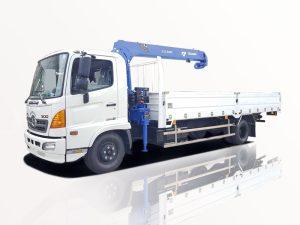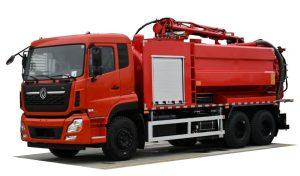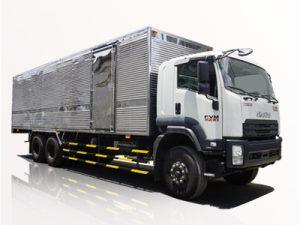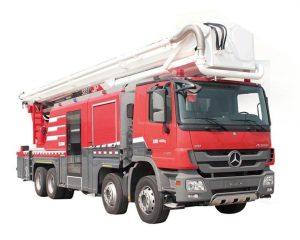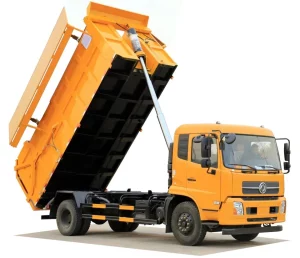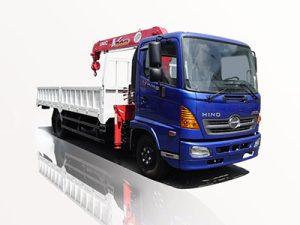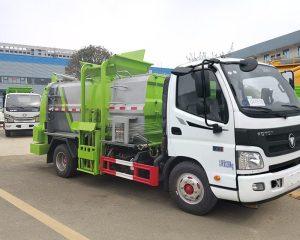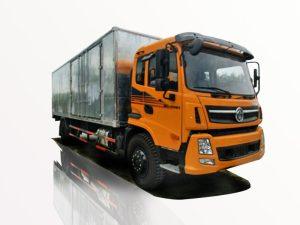Monday to Saturday - 8:00 -17:30
Garbage Compactor Trucks: An In-Depth Guide to Efficient Waste Management
The garbage compactor truck is an essential vehicle in waste management, revolutionizing how municipalities handle and dispose of waste. With an increasing focus on environmental sustainability and efficiency, these vehicles have become a key element in modern refuse collection strategies. This article provides an exhaustive look at garbage compactor trucks, their types, benefits, operational mechanisms, maintenance tips, and more.
Understanding Garbage Compactor Trucks
Garbage compactor trucks are specially designed vehicles that compact waste material to reduce its volume. This type of truck is vital in urban areas where space is limited, allowing for more efficient collection and transportation of refuse. The design features a compacting mechanism that compresses waste into dense bales, making it easier to handle and reducing transportation costs.
How Garbage Compactor Trucks Work
Mechanism of a Garbage Compactor Truck
Garbage compactor trucks utilize a series of mechanical components that work together to perform waste collection and compaction. The major parts include:
- Compaction Blade: This is the primary component responsible for compressing waste. It pushes waste towards the back of the truck to reduce space usage.
- Loading Hopper: The loading hopper is where waste is initially deposited. It is designed to allow easy loading of materials.
- Container Body: This is the main body of the truck, where compacted waste is stored until it reaches the disposal site.
- Hydraulic System: The hydraulic system powers the movement of the compaction blade and the lifting mechanism for the loading hopper.
Steps of Operation
The operation of a garbage compactor truck involves several key steps:
- The truck drives to the waste collection point.
- The operator lowers the loading hopper to collect waste.
- The compaction blade engages to start compressing the waste.
- Once full, the truck transports the compacted waste to a landfill or processing facility.
- The cycle repeats with each collection point.
Types of Garbage Compactor Trucks
Garbage compactor trucks come in various types, tailored for different kinds of waste and operational environments. Here are some of the main categories:
Front-loaders
Front-loader compactor trucks are used for commercial businesses and apartment complexes. They have large bins that are easy to access, and they operate by lifting the container directly from the front of the truck.
Rear-loaders
These trucks have a loading mechanism at the rear. They are commonly used for residential waste collection. Rear-loaders can be fitted with features for higher compression rates, increasing efficiency.
Side-loaders
Side-loader trucks have a unique design that allows waste to be collected from the side of the vehicle. This type is primarily used in areas where street space is limited.
Benefits of Garbage Compactor Trucks
The benefits of using garbage compactor trucks are numerous, particularly in urban waste management:
| Benefit | Description |
|---|---|
| Volume Reduction | Compact waste significantly decreases the number of trips required for disposal. |
| Cost Efficiency | Transportation and labor costs are reduced due to fewer trips. |
| Space Saving | Compact waste takes up less space in landfills. |
| Environmentally Friendly | More efficient waste management can lead to less pollution and greenhouse gas emissions. |
Choosing the Right Garbage Compactor Truck
When selecting a garbage compactor truck, several factors should be considered:
1. Type of Waste
Determine the type of waste you will be handling—residential, commercial, or industrial—as different trucks are better suited for specific applications.
2. Volume Requirements
Assess your waste collection needs to select a truck with the right capacity. Consider how often you will need to empty the truck to avoid overfilling.
3. Operating Environment
The design of the garbage compactor truck should align with the environment it will operate in. Ensure it can navigate narrow streets or do the heavy lifting required in industrial areas.
4. Budget
Establish a budget that includes not only the purchase price but also maintenance and operational costs over time.
Maintenance Tips for Garbage Compactor Trucks
Proper maintenance is crucial to ensuring the longevity and efficiency of garbage compactor trucks:
1. Regular Inspections
Conduct daily checks of all essential systems, including the compaction mechanism, hydraulic system, and brakes.
2. Lubrication
Regularly lubricate all moving parts to reduce friction and wear, and check hydraulic fluids to maintain optimal performance.
3. Scheduled Servicing
Adhere to manufacturer guidelines for regular servicing, including checking the engine, transmission, and electrical systems.
4. Keep It Clean
Regular cleaning helps prevent corrosion and keeps odors at bay. Ensure the compaction chamber and hopper are clean after each use.
Real-World Examples of Garbage Compactor Truck Use
Garbage compactor trucks are employed in various settings to enhance waste management. Below are a few examples:
Urban Waste Management
Cities like San Francisco utilize garbage compactor trucks in their zero-waste programs, ensuring that less waste ends up in landfills through effective composting and recycling initiatives.
Construction Site Use
Garbage compactor trucks serve construction sites by efficiently managing debris and packaging it for disposal, preventing overloading and potential environmental hazards.
Commercial Waste Collection
Businesses like restaurants and retail stores benefit from front-loader compactor trucks that can easily manage large quantities of waste, promoting cleanliness and efficient service provision.
Safety Considerations When Operating Garbage Compactor Trucks
Safety is paramount when operating garbage compactor trucks. Here are important safety considerations:
1. Training
Ensure all operators are adequately trained in vehicle operation and safety protocols.
2. Personal Protective Equipment (PPE)
Operators should wear appropriate PPE, including gloves, safety shoes, and visibility vests to ensure safety and visibility.
3. Safe Driving Practices
Adhere to local traffic regulations and always be vigilant of pedestrians and cyclists in busy urban areas.
4. Emergency Procedures
Establish and review emergency procedures regularly, including what to do in case of a vehicle malfunction or accident.
Future Trends in Garbage Compactor Trucks
The waste management sector is continuously evolving, and so are garbage compactor trucks. Key trends include:
Automation
Many companies are exploring automated compactor systems that reduce the need for human operators, increasing efficiency and safety.
Electric Vehicles
With a global shift towards sustainable solutions, electric garbage compactor trucks are emerging in the market, reducing emissions and operational costs.
Smart Technology
The integration of smart technology provides data analytics for efficient route planning and maintenance schedules, enhancing overall performance.
FAQs About Garbage Compactor Trucks
1. How much waste can a garbage compactor truck hold?
The capacity varies by model, but most garbage compactor trucks can hold between 10 to 30 cubic yards of compressed waste.
2. What types of waste are typically collected by garbage compactor trucks?
Garbage compactor trucks can collect general waste, recyclables, construction debris, and organic material, depending on their design and the local regulations.
3. How does garbage compaction improve efficiency?
Garbage compaction reduces the volume of waste, allowing more material to be transported at once, which cuts down on fuel costs and labor time.
4. Are garbage compactor trucks environmentally friendly?
Yes, they enhance waste management’s environmental aspects by reducing landfill usage and emissions from transportation.
5. What is the average lifespan of a garbage compactor truck?
The lifespan typically ranges from 10 to 15 years, depending on usage, maintenance, and build quality.
6. Can garbage compactor trucks be used in rural areas?
Yes, they can be used in rural areas, although their size and type should be chosen based on local waste management needs and road conditions.


